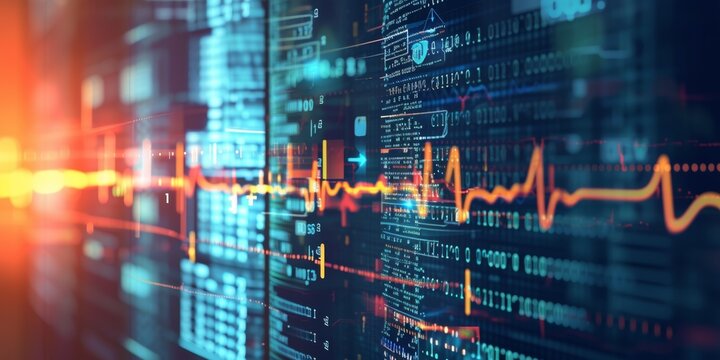The world of healthcare is complex and multifaceted, with medical coding acting as the backbone of healthcare billing and administration. Understanding the evolution of medical coding is not just about tracing the history of a profession but about appreciating the advancements in healthcare documentation, billing, and patient care. This article delves into the historical perspective of medical coding, exploring its origins, development, and the impact it has had on the healthcare industry.
The Origins of Medical Coding
The Early Beginnings
Medical coding, in its most primitive form, can be traced back to the 17th century. However, it wasn’t until the late 19th and early 20th centuries that systematic medical coding began to take shape. The need for a standardized language to describe diseases and procedures became evident as healthcare professionals sought ways to track illnesses and outcomes.
The Birth of ICD
The International Classification of Diseases (ICD) was introduced by the World Health Organization (WHO) in the late 1940s. This was a pivotal moment in the history of medical coding, providing a comprehensive system for categorizing diseases and health conditions. The ICD has undergone numerous revisions to accommodate the advancements in medical science, with the latest version being ICD-11.
The Evolution of Medical Coding Systems
From ICD to CPT
While the ICD focused on diagnosing diseases, there was a growing need for a system to classify medical procedures and services. This led to the development of the Current Procedural Terminology (CPT) by the American Medical Association (AMA) in the 1960s. CPT codes are used extensively in the United States to document and bill for medical, surgical, and diagnostic services.
The Advent of HCPCS
The Healthcare Common Procedure Coding System (HCPCS) was established to provide a standardized coding system for describing the specific items and services provided in the delivery of health care. HCPCS includes codes for procedures, equipment, and supplies not covered by CPT codes, highlighting the expanding scope of medical coding.
The Impact of Technology on Medical Coding
The Digital Revolution
The advent of electronic health records (EHRs) and medical billing software has dramatically transformed medical coding. Technology has streamlined the coding process, reducing errors and improving efficiency. Automated coding systems and AI-driven tools are now being developed, indicating a future where technology plays an even more significant role in medical coding.
The Role of Coders in Modern Healthcare
Despite technological advancements, the role of medical coders remains crucial. They ensure that healthcare providers are reimbursed for their services, facilitate accurate patient records, and contribute to healthcare analytics and research.
The Future of Medical Coding
As healthcare continues to evolve, so too will the field of medical coding. The future may see more sophisticated coding systems, greater automation, and an increased emphasis on accuracy and compliance. The ongoing development of medical science and technology promises to bring new challenges and opportunities to the profession.
FAQs on The Evolution of Medical Coding
What is medical coding?
Medical coding is the process of converting healthcare diagnoses, procedures, medical services, and equipment into universal medical alphanumeric codes.
Why is medical coding important?
Medical coding is essential for billing purposes, ensuring healthcare providers are reimbursed for their services. It also aids in maintaining accurate patient records and contributes to healthcare research and planning.
How has medical coding changed over the years?
Medical coding has evolved from simple disease classifications to a complex system of codes covering diagnoses, procedures, and services. Technological advancements have further transformed coding, making it more efficient and accurate.
What are the main coding systems used today?
The main coding systems include the International Classification of Diseases (ICD), Current Procedural Terminology (CPT), and the Healthcare Common Procedure Coding System (HCPCS).
What does the future hold for medical coding?
The future of medical coding is likely to involve more advanced technology, including AI and machine learning, to improve accuracy and efficiency. The role of coders will continue to evolve, requiring ongoing education and adaptation to new systems and technologies.
In conclusion, the evolution of medical coding from its humble beginnings to its current state is a testament to the ever-changing landscape of healthcare. As we look to the future, the field of medical coding will undoubtedly continue to adapt and evolve, playing a critical role in the administration of healthcare worldwide.
Last modified: 18/08/2025



